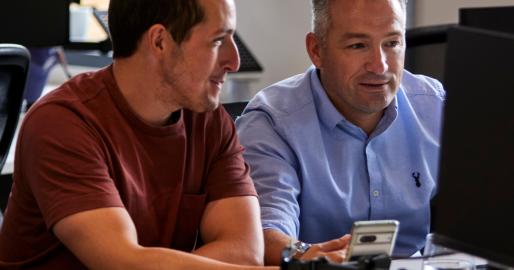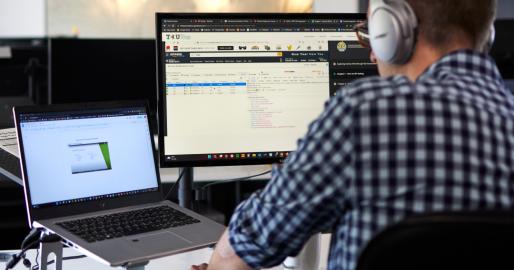
The construction industry plays a vital role in the economy. However, the industry has long been associated with having a somewhat adverse impact on society and the environment. In recent years, there has been a growing awareness of the need to build social value into construction projects.
In this blog, we will explore how the construction industry can use digital tools to build social value when focusing on sustainability, environmental impact, and community engagement, and how Tribus can help you to demonstrate Social Return on Investment for social value initiatives.
Ways digital can support social value objectives
Sustainability
Digital tools can be used to monitor and optimise the sustainability of construction projects. For example, Building Information Modelling (BIM) software can be used to create virtual models of buildings that allow designers and contractors to identify opportunities for energy efficiency, waste reduction, and other sustainability measures. Similarly, web and mobile applications can be used to monitor energy and water usage during construction and operation of buildings, allowing for better management of resources.
Environmental Impact
The construction industry also has a significant impact on the natural environment, through activities such as land clearance, resource extraction, and waste generation. Digital applications can be used to mitigate these impacts by promoting circular economy practices. This includes using technology to enhance data capabilities such as centralisation and cleansing of data,, tracking and reporting of data to mitigate environmental risk, and ability to statistically report back on research and initiatives that in turn provide business insight to drive strategies that support social value goals.
Community Engagement
There are a variety of digital tools that can be used to engage local communities. Social media and mobile applications can be used to engage members of the community to provide them with information about the construction project and allow them to provide feedback and ask questions. It can also help promote sustainable construction practices and encourage community involvement.. Virtual Reality (VR) can also offer an immersive experience to stakeholders before the construction project begins, this helps with increasing community buy-in from the start of the project.
Proving Social Return on Investment
Social Return on Investment (SROI) is a framework for measuring and valuing the social, economic, and environmental outcomes of an organisation's activities. Many construction companies have strategies that support social value objectives, however more often than not they are unable to capture, showcase and report on any of the work they are doing within the community, thus making it very hard to prove the return on investment for social value initiatives.
Technology can be helpful in proving SROI by providing data to help measure the inputs, outputs, outcomes, and impacts of the organisation's activities.
Tribus developed Mi Social, a management tool that enables people to plan, manage and report our social value and community activities. Mi Social allows people access to a Social Value Account (SVA) plan builder tool to produce bespoke social value plans for customers and the local communities that they work in. From here, these activities can be logged and audited on a monthly basis, which is shown as progress against the social value plan. It also allows organisations to demonstrate their social value in bids and tenders, making them more competitive in the proposal process.
Mi Social produces audit ready data that allows organisations to record and report on social return of investment (SROI) on social value activities and compare with other organisations. It also provides access to centralised data which makes data capture and reporting more efficient, accurate and consistent for all teams.
Want to find out more about how developing a tool like Mi Social can help your business? Get in touch with our team today!









